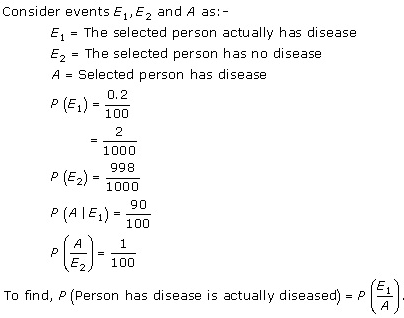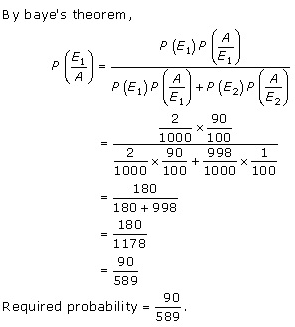A test for detection of a particular disease is not fool proof. The test will correctly detect the disease

of the time, but will incorrectly detect the disease

of the time. For a large population of which an estimated

have the disease, a person is selected at random, given the test, and told that he has the disease. What are the chances that the person actually have the disease?



